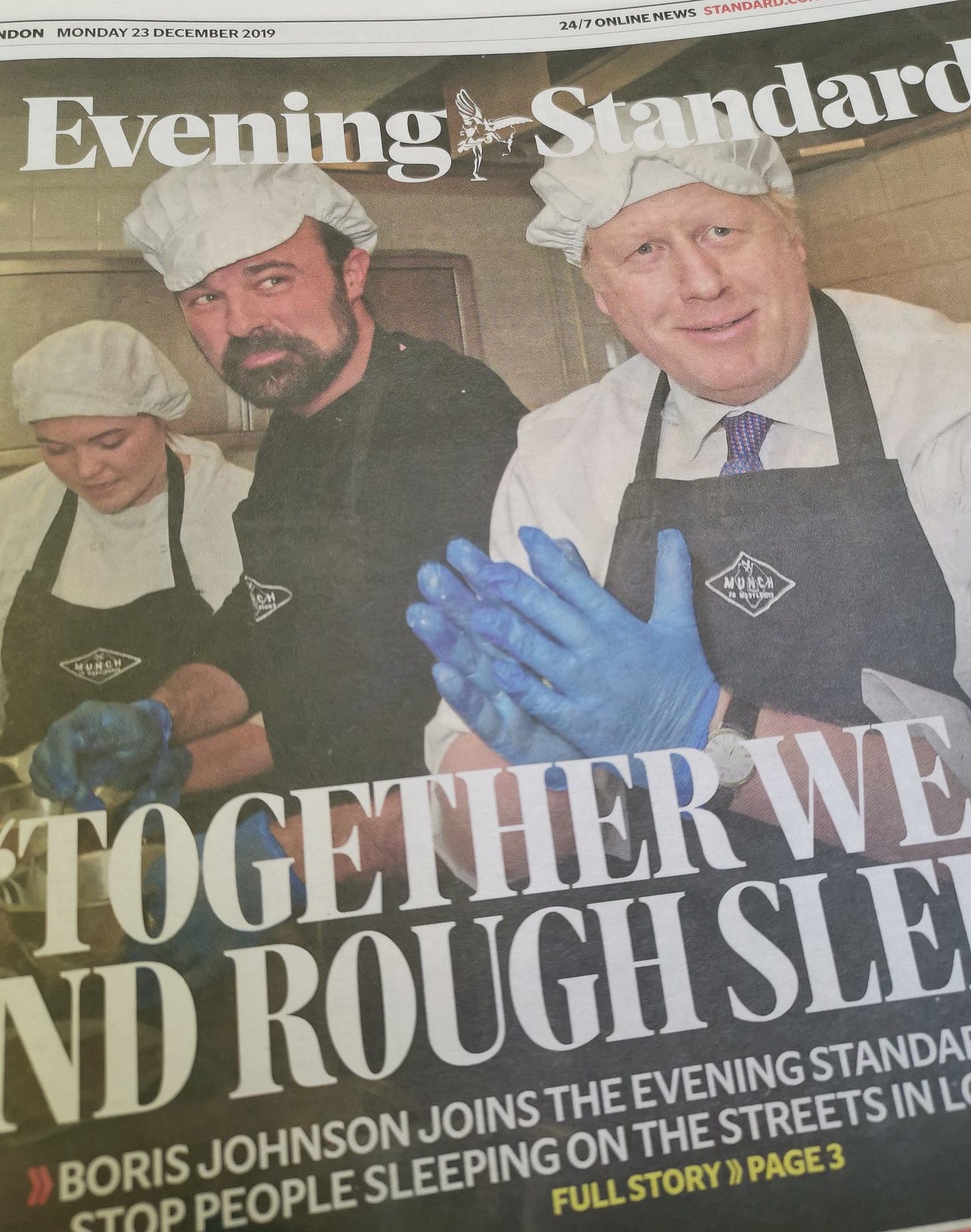RIP The Evening Standard
The once great newspaper had long ago lost touch with the city it was meant to serve
The news that the Evening Standard will cease to exist as a daily newspaper is unlikely to cause many Londoners to shed a tear.
While its attention-grabbing sandwich boards were once a major feature of life in the city, most Londoners long ago lost their love for the paper.
Founded in 1827, its coverage was once widely-respected, with its multiple editions often breaking big stories that grabbed the attention of ordinary Londoners and Prime Ministers alike.
Even as recently as 2008, its aggressive coverage of the city’s then mayor Ken Livingstone was widely credited with securing his downfall and paving the way for his replacement by Boris Johnson.
Yet by the time it was bought in 2009 by the former KGB agent Alexander Lebedev and his son Evgeny for £1, its combination of provincial Conservative politics and Sloane-ranger cultural outlook had become jarring for many Londoners.
Recognising this problem, the papers new owners launched a remarkable advertising campaign apologising to Londoners for “losing touch” with their concerns.

Yet far from reconnecting with the city, Lebedev merely accelerated the rot. The paper’s slavish coverage of the new Conservative mayor quickly led to it acquiring a new nickname as “The Evening Boris”.
This reputation was only increased after I revealed that Johnson had been a repeated party guest of Evgeny at the family’s Italian mansion, alongside its then editor, and Johnson family friend, Sarah Sands.
Johnson would later return the favour by overruling security service advice in order to hand the Standard’s owner a peerage.
Declining Standards
Despite its previous apology campaign, the paper quickly became even more of a Conservative mouthpiece under Lebedev than it had been previously.
His decision, in 2017 to hand the editorship to George Osborne, led to an exodus of respected journalists from the paper and a series of controversies over the paper’s coverage of businesses with ties to the former Chancellor.
Yet relations between Lebedev and Osborne eventually soured, with the paper’s publication of an unflattering picture of the Russian dilettante on the front page, reportedly spelling the beginning of the end.
Osborne’s replacement with David Cameron’s inexperienced sister-in-law Emily Sheffield was a similarly baffling decision, during an era when Labour’s grip on the city’s electorate had only increased.
This deep disconnect with Londoners put the paper in bad stead for what was about to hit it and by the time the pandemic came around and Londoners headed indoors, the Standard’s ability to weather the storm looked doubtful.
Over the past five years the paper’s circulation has dwindled from over well over 800,000 to closer to 250,000, with the paper gradually cutting back both journalists and pages. Losses too have mounted, with the papers owners losing over £80 million since 2019.
At times it has almost seemed ashamed of its own format, with current editor and former magazine supremo Dylan Jones saying that he would never read a printed paper.
In a message to staff today, the Standard’s management blamed the rise of smartphones and the spread of wifi on the Tube for the city turning away from the paper. Yet the truth is that it had long ago ceased to be a publication that most Londoners cared very much about.
Its dwindling relevance could be seen most clearly in the recent London mayoral elections where its coverage barely made a ripple. By the time it took a decision to grudgingly endorse Sadiq Khan - the first time it had ever backed a Labour candidate for Mayor - few people even appeared to notice.
The Standard’s downfall is in some ways part of a much broader picture. As circulations fall across most (but not all) national newspapers, it is likely that other big papers will soon switch to becoming online only publications, while others will fold altogether.
Yet the endurance and success of papers like the Financial Times, and Byline Times shows that it is still possible to maintain and build a loyal audience, even as the broader market for news fragments.
In all such cases the publications which most succeed will be those led by people who genuinely understand and serve their readers, as opposed to those who merely see them as being a passport to celebrity parties and a peerage.
Of course in other times, the fall of London’s only dedicated newspaper would have been met with sadness. Yet sympathy for the affected journalists aside, there will be few Londoners who even notice, let alone mourn the passing of this once great paper.
The challenge for the UK’s remaining big newspapers is to avoid a similarly silent fate.






Nice piece Adam
Only sorry for the journalists and the associated businesses